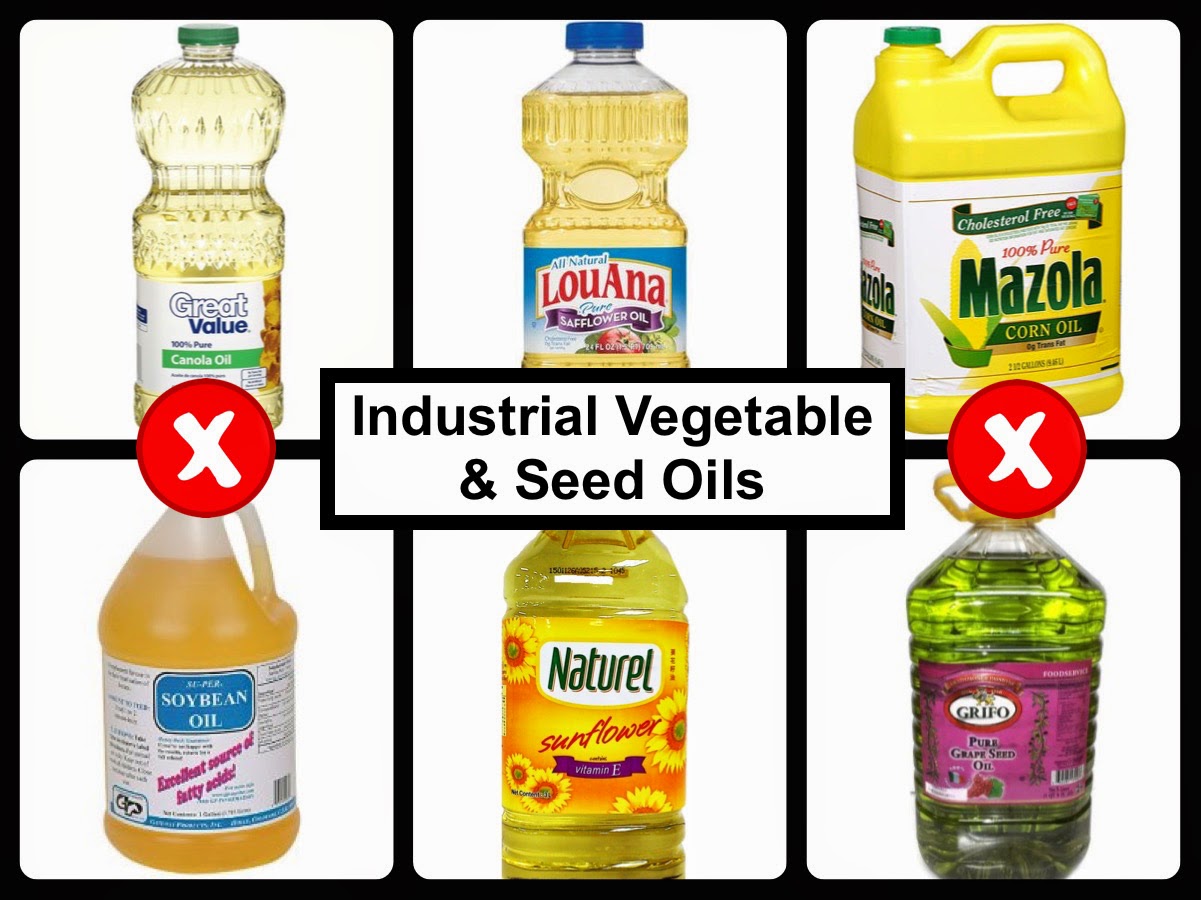Frank’s Comment: P. D. is a health writer I subscribe to with great insights on staying healthy and fit long-term – read & heed!
| Vegetable oils are better termed industrial seed oils, since they’re not made from vegetables and require an industrial process to extract.
(The process for making canola oil requires hexane, a compound similar to gasoline. Among other things.) There are many, many reasons to stay far away from them. But, we’ve been encouraged to use them for a long time now, since saturated fat was supposed to be so bad for us. (Which turned out to be wrong.) Then we got an obesity epidemic. Coincidence? I think not. Several things changed at the start of the obesity epidemic, and increased use of industrial seed oils was one. Check out the graph below. Soybean oil consumption started to skyrocket around 1970.
Experimental and prospective studies show that consumption of linoleic acid, the omega-6 fatty acid found mainly in seed oils, increases obesity. For example, women who had a higher level of omega-6 fatty acids in their red blood cells gained more weight over the next 10 years than those with lower levels. (Wang, Lu, et al. “A prospective study of erythrocyte polyunsaturated fatty acid, weight gain, and risk of becoming overweight or obese in middle-aged and older women.” European Journal of Nutrition 55.2 (2016): 687-697. And by the way, omega-3 fatty acids, the kind found in fish, were inversely associated with obesity. In lab animals (mice), feeding them linoleic acid from seed oils causes greater weight gain than when they’re fed saturated fat, the type associated with meat. (Mamounis, Kyle J., Ali Yasrebi, and Troy A. Roepke. “Linoleic acid causes greater weight gain than saturated fat without hypothalamic inflammation in the male mouse.” The Journal of Nutritional Biochemistry 40 (2017): 122-131.) Linoleic acid also interferes with our internal cannabinoid system and predisposes to obesity. (Alvheim, Anita R., et al. “Dietary linoleic acid elevates endogenous 2‐AG and anandamide and induces obesity.” Obesity 20.10 (2012): 1984-1994.) There’s a lot more on the link between seed oils and obesity, but for now I’ll stop there. The point is, we’re now eating massive amounts of a food that nature did not design. Humans did. And it’s been a disaster. Seed oils arguably also have a share in increased rates of heart disease and cancer. (A topic for another day.) We should be eating the foods that nature intended for us to eat. The foods that we evolved to eat and that shaped our genetics. But we’re not. So we’re fat. Pretty simple. The fats that nature intended for us to eat include the natural fats found in meat and cheese and eggs. And in foods like butter and cream. Olive oil is also a great natural food. And for the record, olive oil is a fruit, not vegetable, oil. Find out lots more about the right foods to eat in The World’s Simplest Fat Loss Plan. Add One-Hour Fitness: How to Get Lean, Muscular, and in Great Cardiovascular Shape in One Hour a Week or Less – and you’re golden. Peace and Health. |
Frank Wilhelmi - Retired/consultant electronic engineer researches and reports practical strategies for optimizing health and fitness into advanced age. “I have a passion for living life to the fullest, and helping others to do the same.” A rapidly growing body of knowledge now enables us to extend our health and fitness decades beyond popular expectations.


